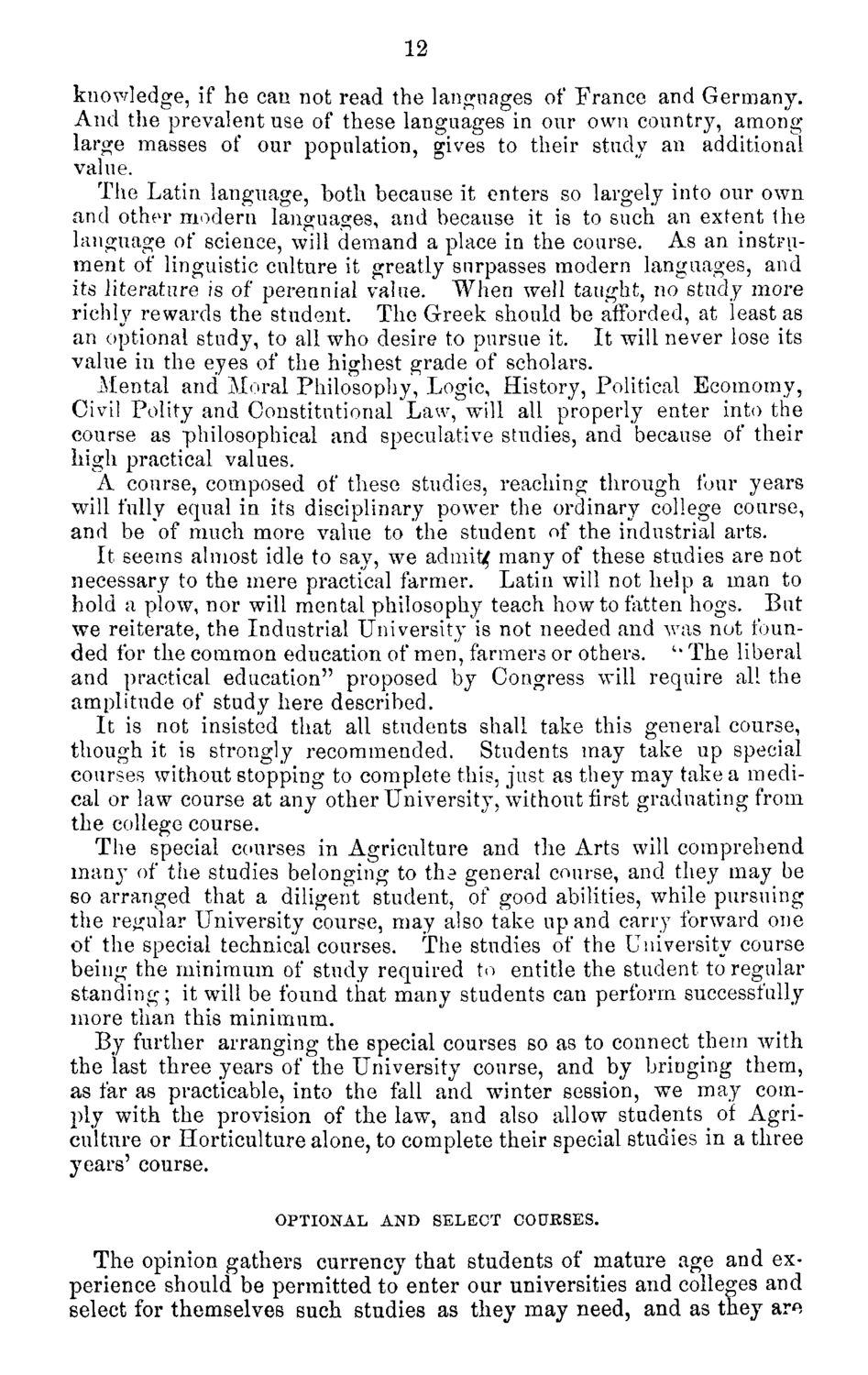| |
| |
Caption: Course Catalog - 1867
This is a reduced-resolution page image for fast online browsing.

EXTRACTED TEXT FROM PAGE:
12 knowledge, if he can not read the languages of France and Germany. And the prevalent use of these languages in our own country, among large masses of our population, gives to their study an additional value. The Latin language, both because it enters so largely into our own and other modern languages, and because it is to such an extent (he language of science, will demand a place in the course. As an instrument of linguistic culture it greatly surpasses modern languages, and its literature is of perennial value. When well taught, no study more richly rewards the student. The Greek should be afforded, at least as an optional study, to all who desire to pursue it. It will never lose its value in the eyes of the highest grade of scholars. Mental and Moral Philosophy, Logic, History, Political Ecomomy, Civil Polity and Constitutional Law, will all properly enter into the course as philosophical and speculative studies, and because of their high practical values. A course, composed of these studies, reaching through four years will fully equal in its disciplinary power the ordinary college course, and be of much more value to the student of the industrial arts. It seems almost idle to say, we admity many of these studies are not necessary to the mere practical farmer. Latin will not help a man to hold a plow, nor will mental philosophy teach how to fatten hogs. But we reiterate, the Industrial University is not needed and was not founded for the common education of men, farmers or others. '• The liberal and practical education" proposed by Congress will require all the amplitude of study here described. It is not insisted that all students shall take this general course, though it is strongly recommended. Students may take up special courses without stopping to complete this, just as they may take a medical or law course at any other University, without first graduating from the college course. The special courses in Agriculture and the Arts will comprehend manj- of the studies belonging to the general course, and they may be so arranged that a diligent student, of good abilities, while pursuing the regular University course, may also take up and carry forward one of the special technical courses. The studies of the University course being the minimum of study required to entitle the student to regular standing; it will be found that many students can perform successfully more than this minimum. By further arranging the special courses so as to connect them with the last three years of the University course, and by bringing them, as far as practicable, into the fall and winter session, we may comply with the provision of the law, and also allow students of Agriculture or Horticulture alone, to complete their special studies in a three years' course. OPTIONAL AND SELECT COURSES. The opinion gathers currency that students of mature age and experience should be permitted to enter our universities and colleges and select for themselves such studies as they may need, and as they are
| |